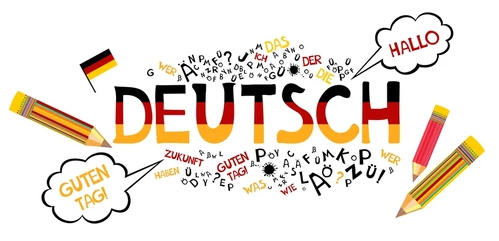Let’s explore the Djibouti National Language. Djibouti, a small but culturally rich nation in the Horn of Africa, is a melting pot of diverse ethnic groups and language. While it’s known for its strategic location at the crossroads of Africa and the Middle East, Djibouti’s linguistic tapestry is equally intriguing. The Djibouti National Language, as officially recognized, comprises two distinct yet harmonious tongues: French and Arabic. In this comprehensive exploration, we delve into the complexities, historical roots, and contemporary significance of these language in Djibouti’s society. As we dive deeper, we aim to answer frequently asked questions about Djibouti’s linguistic landscape, shedding light on the language’s role in shaping the nation’s identity.
French in Djibouti: A Colonial Legacy
The presence of French in Djibouti dates back to the colonial era when Djibouti was part of French Somaliland. It was under French colonial rule from the late 19th century until Djibouti’s independence in 1977. Consequently, French holds a prominent position in the nation’s linguistic framework, as it was the language of administration, education, and culture during the colonial period.
Why is French the National Language of Djibouti?
Historical Influence: The French colonial legacy left an indelible mark on Djibouti’s cultural and linguistic landscape. The widespread use of French during the colonial era contributed to its continued importance.
Administrative Language: French remains the language of administration in Djibouti. Government documents, official communications, and legal proceedings are predominantly conducted in French.
Education: French is the medium of instruction in Djibouti’s educational institutions, from primary to tertiary levels. This practice ensures that future generations are proficient in the language.
Economic Opportunities: Proficiency in French opens doors to international job opportunities, as it is widely spoken in the neighboring countries and the international business community.
The Role of French in Djibouti’s Society
French in Djibouti is more than just a linguistic legacy; it’s a part of daily life. Here’s how it functions in contemporary Djiboutian society:
Code-Switching: Many Djiboutians practice code-switching, effortlessly transitioning between French and Arabic in casual conversation.
Cultural Expression: French is instrumental in the expression of Djibouti’s rich cultural heritage. Literature, music, and the arts often incorporate French elements.
Global Connectivity: French serves as a gateway to international diplomacy and global connectivity, especially within the Francophonie, a community of French-speaking nations.
Arabic in Djibouti: The Language of Heritage
In addition to French, Arabic is another key player in Djibouti’s linguistic mosaic. It holds a special place as the language of religion, culture, and identity for a significant portion of the population.
The Role of Arabic in Djibouti’s Society
Religion: Arabic is the language of the Quran, and Djibouti is predominantly Muslim. Therefore, Arabic plays a pivotal role in religious rituals, prayers, and ceremonies.
Cultural Identity: For the Afar and Issa ethnic groups, Arabic is not just a language but a part of their cultural identity. It is spoken at home, passed down through generations, and forms an essential bond among community members.
Madrasas: Arabic is taught in religious schools or madrasas, where students learn both classical Arabic for religious texts and colloquial Arabic for everyday communication.
Djibouti National Language: A Symbiotic Relationship
While French and Arabic may appear distinct, in Djibouti, they coexist in harmony. This symbiotic relationship is crucial for understanding the nation’s unique linguistic landscape.
Bilingualism: Many Djiboutians are bilingual, proficient in both French and Arabic, allowing them to navigate various aspects of life seamlessly.
Cross-Cultural Understanding: The coexistence of French and Arabic promotes cross-cultural understanding among Djibouti’s diverse ethnic groups.
Business and Commerce: Arabic is essential for trade and commerce, especially in the bustling markets and ports of Djibouti. French, on the other hand, facilitates international business transactions.
Conclusion
In Djibouti, the two official language, French and Arabic, form the bedrock of the nation’s linguistic identity. French, with its colonial legacy and contemporary administrative role, coexists seamlessly with Arabic, which holds cultural and religious significance. This linguistic harmony reflects Djibouti’s commitment to diversity and cross-cultural understanding. Whether you’re exploring bustling markets, delving into the country’s rich history, or engaging with its warm and welcoming people, the bilingualism of Djibouti’s national language will undoubtedly enhance your experience.
FAQs About Djibouti National Language
1. Is Djibouti a French-speaking country?
Yes, Djibouti is considered a French-speaking country due to its historical ties to France and the continued use of French in administration, education, and daily life.
2. Is Arabic widely spoken in Djibouti?
Arabic is widely spoken in Djibouti, especially among the Afar and Issa ethnic groups. It is not the official language but holds cultural and religious significance.
3. Can I get by in Djibouti with just French?
While French is essential for administrative and educational purposes, you can get by in Djibouti with just French, especially in urban areas. However, knowing some Arabic phrases can be helpful for cultural immersion.
4. Are there efforts to preserve and promote both language in Djibouti?
Yes, Djibouti recognizes the importance of preserving and promoting both French and Arabic. The government supports bilingual education and cultural initiatives to ensure the vitality of both language.
5. Can I travel to Djibouti without knowing French or Arabic?
While it’s advantageous to know either French or Arabic when visiting Djibouti, English is also spoken in tourist areas, and you can often find English-speaking guides and service providers.
References
- “Djibouti.” Ethnologue: Language of the World. Retrieved from https://www.ethnologue.com/country/DJ
- “Djibouti – Language.” Encyclopedia of the Nations. Retrieved from http://www.nationsencyclopedia.com/Africa/Djibouti-LANGUAGE.html
- “Djibouti.” CIA World Factbook. Retrieved from https://www.cia.gov/the-world-factbook/countries/djibouti/

